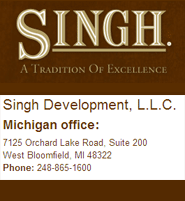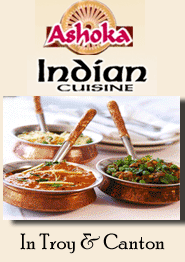|
|
|
|
|
|
Melbourne is the second most populous city in Australia, with a metropolitan area population of approximately 3.8 million (2007 estimate). Located around Port Phillip Bay in Australia's south-east, Melbourne is the state capital of Victoria. Melbourne's demonym is a Melburnian.
Melbourne is a major centre of commerce, industry and cultural activity. The city is often referred to as Australia's 'sporting and cultural capital' and it is home to many of the nation's most significant cultural and sporting events and institutions. It has been recognised as a gamma world city by the Loughborough University group's 1999 inventory. Melbourne is notable for its mix of Victorian and contemporary architecture, its extensive tram network and Victorian parks and gardens, as well as its diverse, multicultural society. It was the host city of the 1956 Summer Olympics and the 2006 Commonwealth Games. In 1981, it hosted the Commonwealth Heads of Government Meeting. In 2006, the city hosted the G20 Summit, in which the leaders of the world's nineteen largest economies met.
Melbourne was founded by free settlers in 1835, 47 years after the first European settlement of Australia, as a pastoral settlement situated around the Yarra River.[6] Transformed rapidly into a major metropolis by the Victorian gold rush in the 1850s, 'Marvellous Melbourne' became Australia's largest and most important city by 1865, but was overtaken by Sydney as the largest city in Australia during the early 20th century.
Melbourne served as the federal seat of government from the time of the new nation's federation in 1901, untFederal Parliament moved to the purpose-built capital, Canberra, in 1927.
In May and June 1835, the area that is now central and northern Melbourne was explored by John Batman, a leading member of the Port Phillip Association, who negotiated a transaction for 600,000 acres (2,400 km²) of land from eight Wurundjeri chiefs. He selected a site on the northern bank of the Yarra River, declaring that "this will be the place for a village", and returned to Launceston in Tasmania (then known as Van Diemen's Land). However, by the time a settlement party from the Association arrived to establish the new village, a separate group led by John Pascoe Fawkner had already arrived aboard the Enterprize and established a settlement at the same location, on 30 August 1835. The two groups ultimately agreed to share the settlement. Batman's Treaty with the Aborigines was annulled by the New South Wales government (then governing all of eastern mainland Australia), which compensated the Association.[6] Although this meant the settlers were now trespassing on Crown land, the government reluctantly accepted the settlers' fait accompli and allowed the town (known at first by various names, including 'Bearbrass') to remain.
Melbourne has an integrated public transport system promoted under the Metlink brand. Originally laid out late in the 19th century when trains and trams were the primary methods of travelling to the suburbs, the 1950s saw an increase in private vehicles and freeway construction.[97] This trend has continued with successive governments despite relentless traffic congestion, with a resulting drop in public transport modeshare from the 1940s level of around 25 per cent to the current level of around 9 per cent. Melbourne's public transport system was privatised in 1999. Between 1999 and 2008, funding for road expansion was five times greater than public transport extension.
Melbourne's tram network is the largest tram network in the world.[102] Melbourne's is Australia's only tram network to comprise more than a single line. Sections of the tram network are on road, others are separated or light rail routes. Trams are not only a form of transport, but a tourist icon and cultural asset. Visitors are served by a free City Circle Tram, as well as fleet of restaurant trams.
|
|
|




|
|
|
|